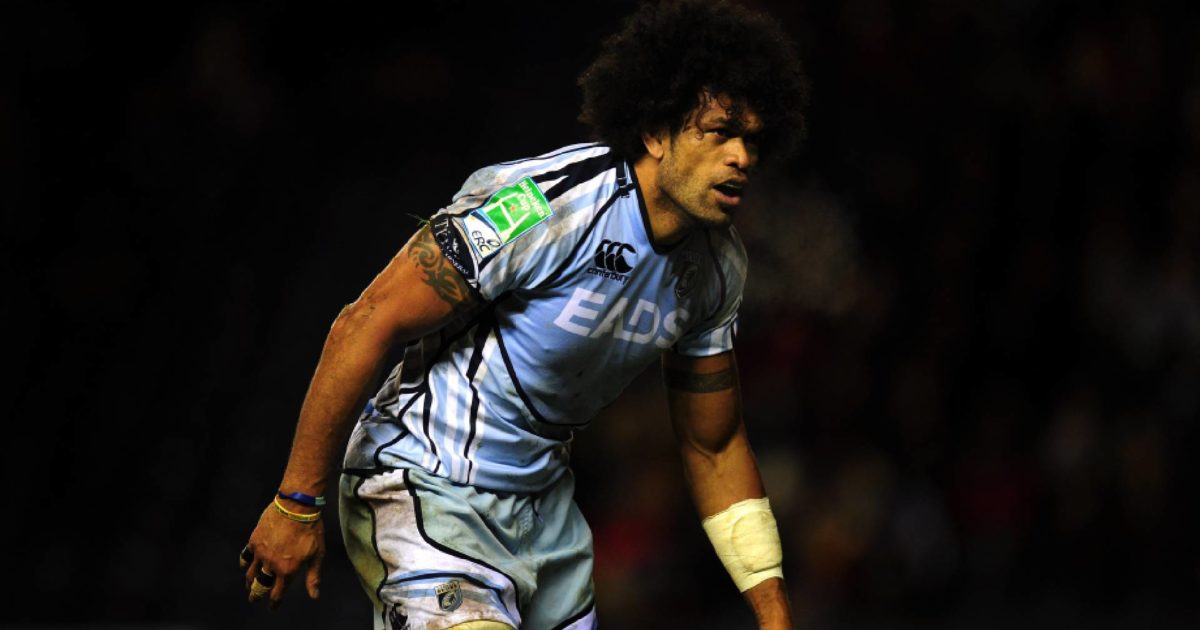The former Tonga international who has retired from rugby aged 45

A former Tongan international has hung up his boots at the age of 45 after over 20 seasons of action around the globe.
Ma’ama Molitka hung up his boots last week after seven seasons of service for Bedfordshire club Ampthill, helping the English side up the ranks to reach the second-tier RFU Championship in 2019.
The loose forward had previously played 18 tests for Tonga over the course of 11 years, rounding out his international career at the 2007 World Cup in France when he came off the bench against England in a 36-20 defeat in Paris.
Molitika had also played in three further tests for the Pacific Islanders during their tour of the United Kingdom in 2006, where he played against Wales, Scotland and Ireland.
His retirement announcement was shared on social media by former New Zealand cricket star Scott Styris, who played 1st XV rugby with Molitika at Hamilton Boys’ High School.
Styris, the 44-year-old who retired from cricket in 2014, graduated from Hamilton Boys’ in 1993.
“Congrats @maamamolitika, a privilege to share the rugby field with you way back in ‘The Factory’ days at Hamilton Boys,” the former Black Caps allrounder wrote on Twitter.
“Unbelievable watching your career take off from afar. A legend. Enjoy retirement.”
Congrats @maamamolitika , a privilege to share the rugby field with you way back in 'The Factory' days at Hamilton Boys. Unbelievable watching your career take off from afar. A legend. Enjoy retirement https://t.co/lUV2ppvE1S
— Scott Styris (@scottbstyris) April 20, 2020
After coming through the club ranks in Hamilton with local club side Fraser-Tech, Molitka’s representative career took off in 1996 when he first appeared for Waikato B – the same year he made his debut for Tonga against the New Zealand Maori.
His first foray into professionalism came three years later when he moved to Wales to join Bridgend in 1999.
There he helped the club win their first Welsh Premiership in 2003 and finished the season as joint top try-scorer.
Stints with the now-defunct Celtic Warriors, Premiership side Harlequins, Japanese club IBM Big Blue and Italian team Rugby San Dora followed, but perhaps the highlight of Molitika’s domestic career came with the Cardiff Blues.
He made 112 appearances for the PRO14 franchise after initially joining as cover for players attending the 2007 World Cup, and helped them to an Anglo-Welsh Cup title in 2009 as well as a European Challenge Cup crown the following year.
Molitika lastly joined Ampthill in 2013, going on to make 160 outings across seven seasons as the club won promotion into the third-tier National League in 2015 before securing a berth in the Championship four years later.
“My professional career has spanned over 21 years and I am lucky to have experienced all the things I have, from playing for my country and being selected for the Barbarians through to each and every club,” he said in a statement.
“I am now moving onto the next chapter which will hopefully include me staying within the game and allowing me to coach others using my experience and knowledge.”











































































